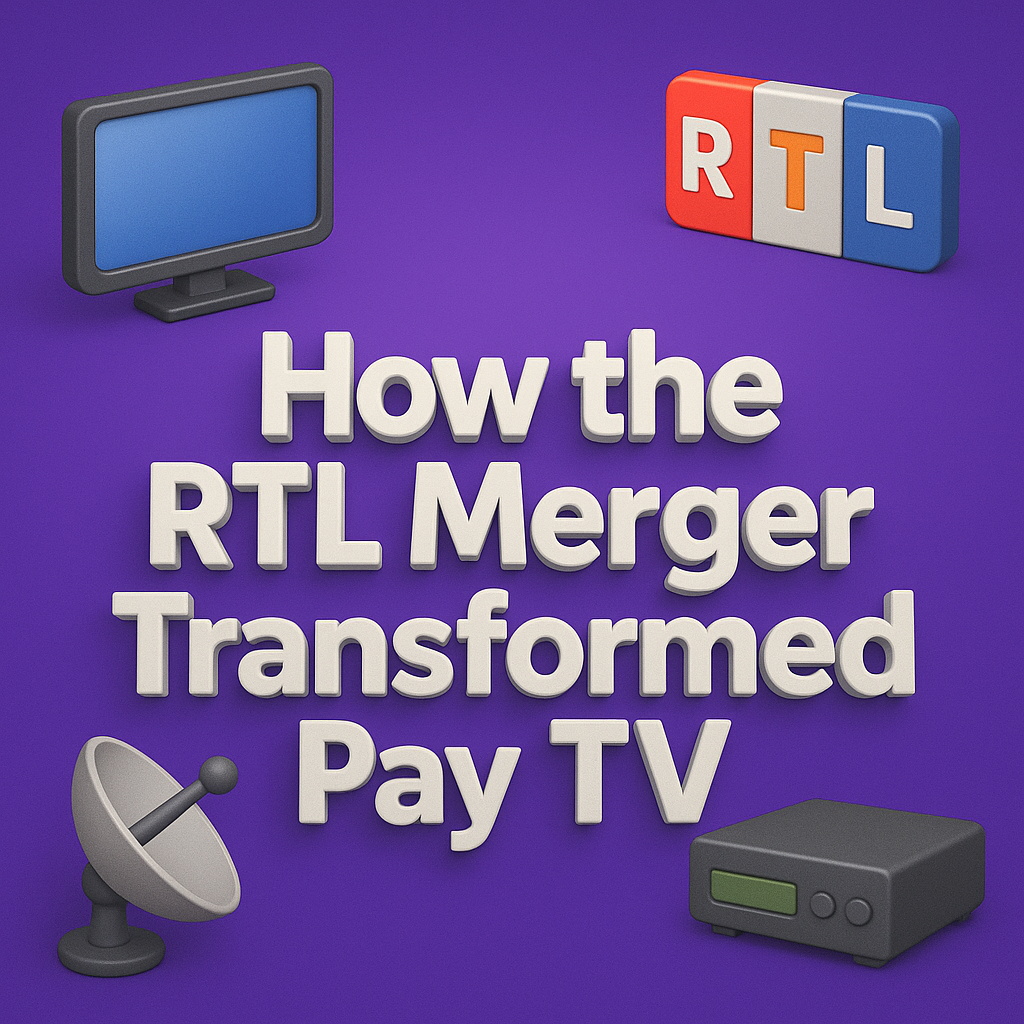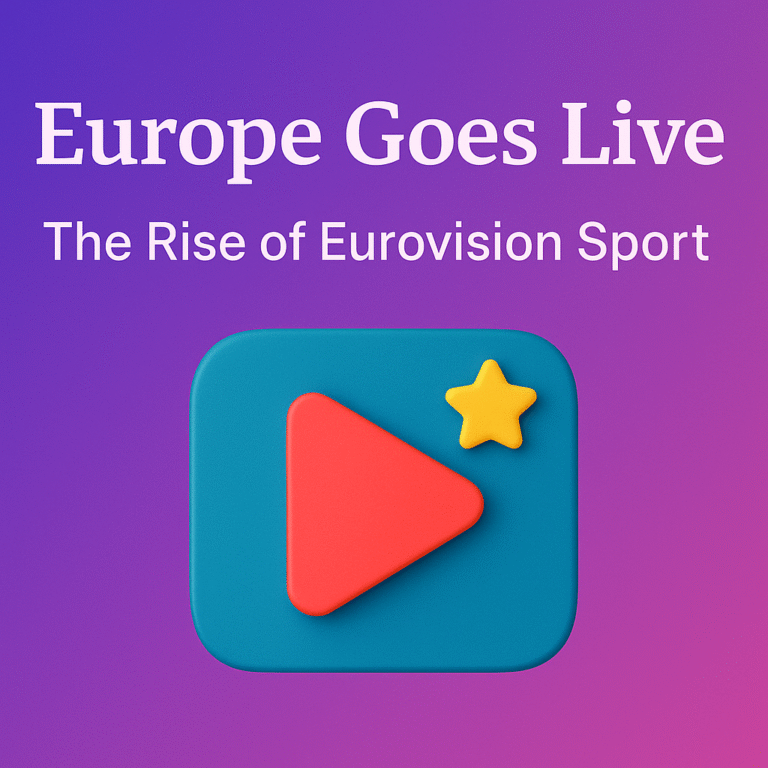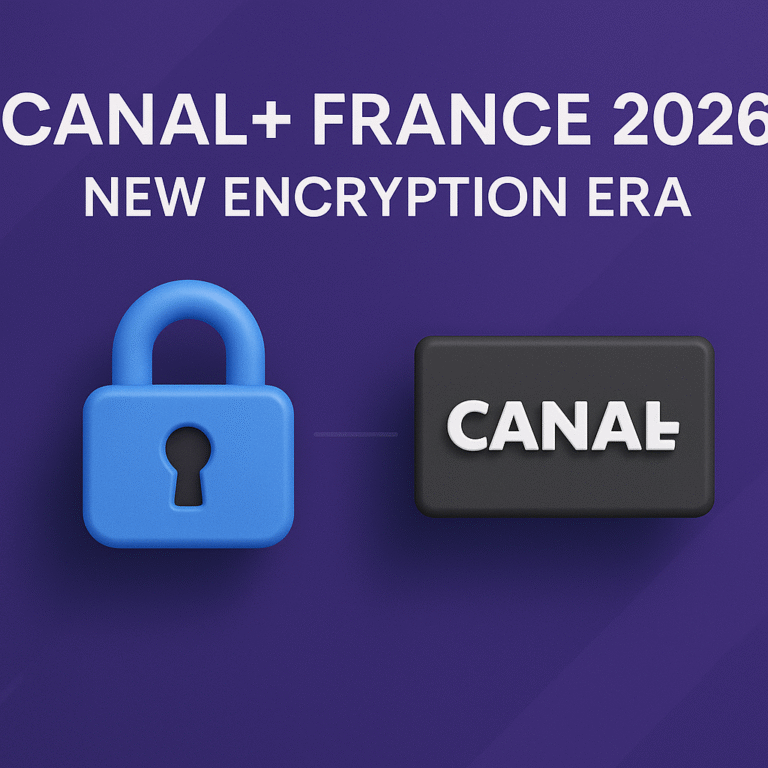Sky Deutschland 2026 – How the RTL Merger Transformed Pay TV

Sky Deutschland has always been a powerhouse in German Pay TV, but 2026 marks the start of something completely new. After years of operating as a standalone satellite and streaming provider, Sky officially merged with RTL Group — and the results are already shaking up the television landscape across Germany. This isn’t just a business move; it’s a cultural shift that’s redefining how millions of Germans watch, discover, and pay for content.
In this article, we’ll explore how this historic partnership between Sky and RTL is transforming Pay TV — from the channel lineup and pricing model to how entertainment, sports, and streaming are blending into one seamless experience.
Why the Merger Happened
To understand the change, we have to go back a few years. Sky Deutschland, despite its strong brand, was facing increasing competition from streaming platforms like Netflix, Amazon Prime Video, and even RTL’s own streaming service, RTL+. The market was fragmenting fast — users were paying for multiple subscriptions just to keep up with the shows they loved.
The solution was simple but bold: combine forces. RTL brought its expertise in local entertainment, news, and audience reach, while Sky contributed its technological muscle, premium sports rights, and satellite infrastructure. Together, they created a hybrid platform capable of competing not only with global streaming giants but also with local broadcasters.
The New Sky + RTL Model
The result of this merger is a new type of Pay TV ecosystem that blends the best of both worlds. The interface, content, and pricing have all changed — not drastically, but smartly. Sky’s system now features a dedicated “RTL Zone” integrated directly into the main Sky Q interface. Subscribers to Sky Premium or Max can browse RTL+ originals, live channels, and on-demand content without leaving Sky’s menu.
Even more interesting is the new **“Sky RTL Select”** channel — a hybrid feed that mixes Sky Originals, RTL reality shows, and live event coverage. For example, you might watch a Bundesliga match on Sky Sport and immediately catch an RTL-produced post-game documentary or talk show, all under the same subscription.
Impact on Pay TV Subscribers
For long-time Sky users, the first noticeable change was how smoother everything became. Logging in, accessing content, and switching between live and on-demand channels now happens almost instantly. RTL’s integration improved content discovery dramatically. Instead of digging through menus, recommendations now appear dynamically, mixing both brands’ catalogs. If you watched a Sky Original crime series, you might get a suggestion for an RTL+ documentary or a similar local drama.
Pricing, however, was the most delicate topic. Sky introduced a small adjustment across Premium and Max plans (around 5–7%), but this came with free RTL+ Premium access. For many households, that effectively replaced a separate €6.99 monthly streaming fee — meaning the value increased without much pain.
Sports and Entertainment in Harmony
Historically, Sky was all about sports while RTL specialized in entertainment. The merger brought the two worlds together in ways few expected. Sky now uses RTL’s production teams to enhance entertainment shows around sports coverage. Programs like “Bundesliga Highlights Live” are now produced jointly — offering smoother transitions between matches and behind-the-scenes interviews.
Conversely, RTL’s massive entertainment catalog is benefiting from Sky’s broadcast quality and UHD infrastructure. Shows like “Deutschland sucht den Superstar” (Germany’s Got Talent) and “Let’s Dance” are now simulcast in UHD, giving fans the kind of crispness they previously only saw during Sky sports events. This merging of technical excellence with mass entertainment is one of the biggest wins for viewers.
How the Merger Changed the Technology
The merger wasn’t just about content — it was also about technology. Sky’s satellite systems on Astra 19.2°E now handle shared transponders that carry both Sky and RTL signals. This setup reduces bandwidth waste and ensures that UHD and HD channels perform with minimal latency.
Behind the scenes, RTL’s streaming infrastructure and Sky’s on-demand servers were also merged. The result is faster playback for catch-up TV and smoother UHD streaming through Sky Go and RTL+. Sky engineers call it “hybrid broadcasting,” and it’s essentially the best of both traditional and online delivery methods combined.
Even the apps got a makeover. The Sky Q interface now shows joint branding in several menus, and the RTL+ app lets users log in with their Sky credentials — a small but powerful integration that makes it easier for users to navigate between services.
Reality Check
Now, let’s get real — not everyone is thrilled about this merger. Some old-school Sky fans feel like the brand has lost a bit of its elite identity. They argue that sharing space with RTL, a channel known for more casual, mainstream content, cheapens Sky’s premium image. But for most viewers, this change makes perfect sense. Instead of having to juggle multiple subscriptions and devices, they now have everything in one place — live sports, Hollywood movies, German shows, and even reality TV.
From a business standpoint, the partnership was inevitable. Germany’s Pay TV market was too divided, and by uniting Sky and RTL, both brands found a way to stay relevant in the age of streaming. The end result? More choice, more convenience, and far better value for the price.
Original Productions and Co-Branding
One of the biggest surprises post-merger has been the rise of co-branded productions. Shows like “The Perfect Game” (a sports-drama series) and “Reality Reloaded” are produced jointly by Sky Studios and RTL Entertainment. This collaboration brings together cinematic storytelling and mass appeal, something neither brand could have pulled off alone.
There’s also been a shift in how advertising works. Sky’s higher-tier plans remain ad-free, but lower packages are now experimenting with “sponsored breaks” — short, non-intrusive commercial inserts produced by RTL’s ad network. This change allows Sky to maintain premium pricing while giving budget-conscious viewers cheaper options.
The Viewer Experience: A New Standard
What’s most impressive is how smooth the user experience has become. Switching from live sports to on-demand shows is instant. Voice search now recognizes both Sky and RTL titles, and the new content-recommendation engine feels smarter — because it is. It’s powered by RTL’s data analytics, which tracks viewing habits across millions of users to improve personalization. Sky has always excelled in production, but with RTL’s analytics muscle, it’s now unbeatable in prediction.
Customer satisfaction scores have already improved. According to early reports from 2026’s first quarter, Sky DE’s average viewing time per subscriber increased by 23%. That’s not a coincidence — it’s a direct result of making content discovery easier and more engaging.
Impact on the German Market
Competitors are watching closely. Netflix Germany, Disney+, and Amazon Prime have all ramped up local content production to compete. But what Sky and RTL have created is uniquely German — a blend of national culture and global quality. It’s a reminder that sometimes collaboration beats competition.
Even public broadcasters like ARD and ZDF are feeling the heat. They’ve begun experimenting with UHD sports coverage and digital-first documentaries, inspired by Sky DE’s new hybrid model. In a way, the merger didn’t just change Sky; it elevated the entire German Pay TV ecosystem.
Final Verdict
The Sky-RTL merger in 2026 is a turning point for German television. For the first time, viewers don’t have to choose between elite and popular — they get both. Sky brings the technology, UHD quality, and sports rights; RTL adds storytelling, entertainment, and cultural familiarity. Together, they’ve built something that feels complete.
Sure, the nostalgia for the “old Sky” is understandable. But the truth is, this new version is stronger, smarter, and more connected to how people actually watch TV in 2026. Whether you’re tuning in for a Bundesliga match, a crime thriller, or a celebrity talk show, the experience feels cohesive, fast, and premium. That’s the transformation — not just a merger on paper, but a genuine upgrade to how Pay TV works in Germany.
FAQ
- When did the Sky and RTL merger officially take effect? – The partnership became official in January 2026 after regulatory approval.
- Do I need separate accounts for Sky and RTL? – No, your Sky credentials now work on RTL+ for Premium and Max users.
- Has the merger changed pricing? – Slightly, but RTL+ Premium is now included in higher Sky tiers at no extra cost.
- Is all RTL content available on Sky? – Most major shows and live events are, with full integration planned by 2027.
- Will Sky keep its own identity? – Yes, Sky remains the brand for premium sports and cinema; RTL enhances its entertainment side.
For the latest Sky DE and Pay TV updates, visit cccam2 Premium IPTV.






